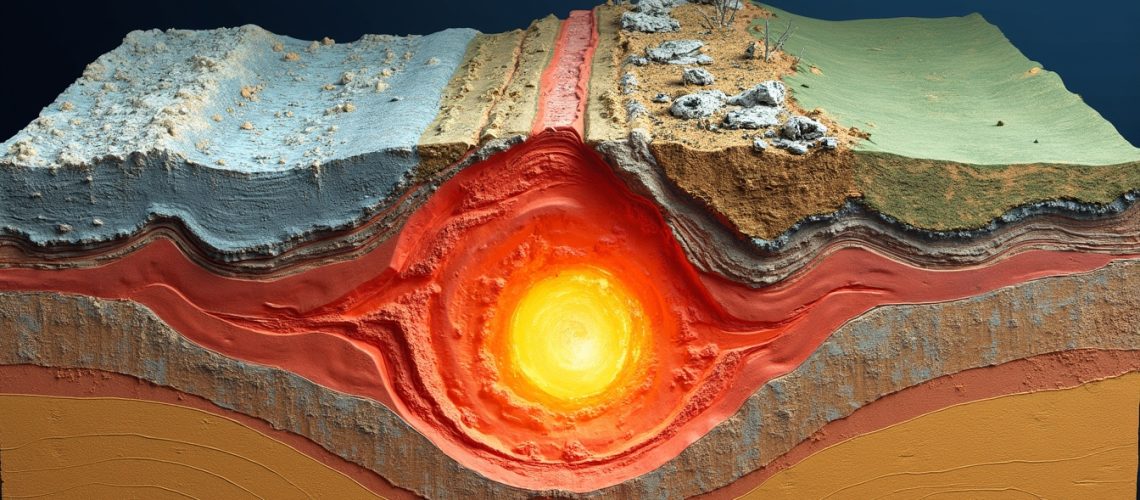Understanding Shear Zones: Earth's Dynamic Deformation Zones
Shear zones represent critical geological features that provide profound insights into the Earth's tectonic processes and crustal dynamics. These linear zones of intense deformation occur within rock masses where differential stress causes significant strain and displacement.
What Are Shear Zones and Why Are They Scientifically Significant?
Shear zones are fundamental geological structures that manifest across various scales, ranging from microscopic deformation bands to massive regional features spanning hundreds of kilometres. Approximately 70% of the Earth's crust is affected by these dynamic zones, highlighting their critical importance in understanding planetary geological processes.
How Do Shear Zones Form in Earth's Crust?
The formation of shear zones involves complex interactions between tectonic forces, temperature, and pressure conditions. Typically, these zones develop when stress exceeds the inherent strength of surrounding rocks, resulting in concentrated deformation.
Tectonic Settings Influencing Shear Zone Development
Key tectonic settings that contribute to shear zone formation include:
- Convergent boundaries with compression forces
- Divergent boundaries experiencing extension
- Transform boundaries with horizontal shear stress
- Intraplate settings with localized stress fields
Characteristics of Shear Zones
Shear zones exhibit distinctive features such as:
- Intense strain localization
- Unique rock fabrics
- Specific geometric configurations
- Mineral alignment and reorientation
Deformation Mechanisms in Shear Zones
Different deformation mechanisms characterise shear zones, including:
- Brittle deformation (fracturing and faulting)
- Ductile deformation (plastic flow and recrystallization)
- Brittle-ductile transition zones
Economic and Geological Implications
Shear zones play a crucial role in:
- Metamorphic mineral formation
- Concentrating economic mineral resources
- Controlling structural geological features
- Influencing seismic activity
Prominent Global Shear Zone Examples
Notable shear zones include:
- San Andreas Fault (United States)
- Moine Thrust Zone (Scotland)
- Alpine Fault (New Zealand)
- Zagros Shear Zone (Iran)
Long-Term Evolution of Shear Zones
Shear zones dynamically evolve over millions of years, transitioning between:
- Brittle and ductile behaviour
- Serving as conduits for magmatic intrusions
- Responding to changing geological conditions
Scientific Research and Future Directions
Ongoing research focuses on:
- Advanced 3D geological modelling
- Machine learning techniques
- Detailed understanding of deformation mechanisms
- Predictive geological mapping
Conclusion: The Significance of Shear Zones
Shear zones represent complex, dynamic regions within the Earth's lithosphere that provide critical insights into tectonic processes, metamorphic history, and resource potential. Their study continues to be fundamental in advancing our understanding of planetary geological systems.
Ready to Discover the Next Major Mineral Find?
Explore the world of significant mineral discoveries with Discovery Alert, providing real-time notifications of notable geological events like the valuable shear zones you just read about. Perfect for both novice and experienced investors, our AI-driven service simplifies complex data into actionable insights, fostering informed decision-making. Discover how we can enhance your investment journey with a 30-day free trial at Discovery Alert.







